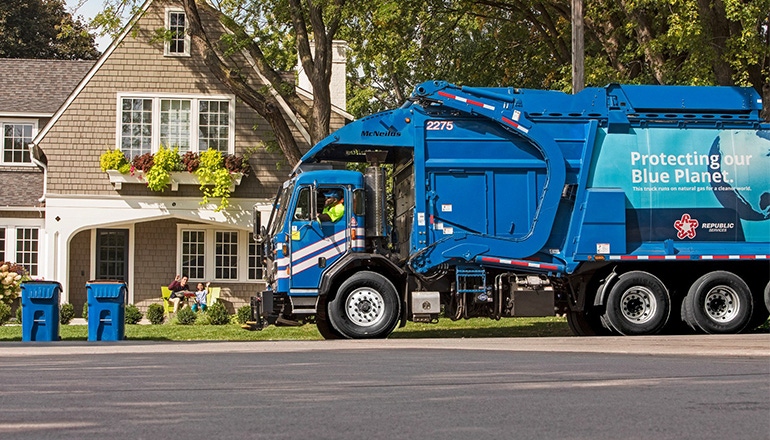The company says its emissions reduction target of 35 percent by 2030 has been approved by the Science Based Targets initiative.

Republic Services, Inc. announced it has become the first U.S. recycling and solid waste services provider to have its emissions reduction target approved by the Science Based Targets initiative (SBTi) as consistent with levels required to meet the goals of the Paris Agreement.
"As an industry leader, it's up to us to set the standard by doing what's right for the environment and the communities we serve," said Pete Keller, Republic Services' vice president of recycling and sustainability, in a statement. "Republic Services took the extra step of setting a science-based climate leadership goal, and we're pleased that SBTi recognizes and validates our commitment to reducing emissions throughout our operations."
Last month, the company unveiled ambitious, long-term sustainability goals, which include a climate change target designed to reduce absolute Scope 1 and 2 greenhouse gas (GHG) emissions by 35 percent and establish Republic as a climate leader in the industry. The goal covering GHG emissions from Republic's operations (Scope 1 and 2) are consistent with reductions required to keep warming to well below 2 degrees Celsius. Republic Services aims to reach this goal by 2030, using 2017 as the baseline year.
"Science-based targets provide companies with a clearly defined pathway to future-proof growth and benefit from greater opportunities for innovation, strengthened investor confidence and improved competitiveness," said Heidi Huusko, senior manager of environment and climate at the United Nations Global Compact, in a statement. "By having their emissions reduction targets validated by the SBTi, Republic Services is ensuring that its targets are consistent with transformation at the scale and pace that science says is needed to prevent catastrophic global warming."
About the Author(s)
You May Also Like


